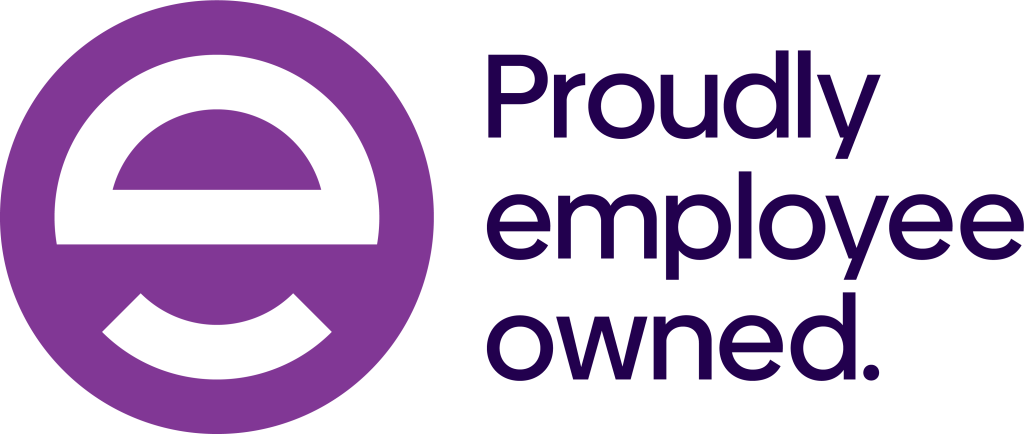
Employee Ownership Day 2025, which is taking place on the 20th June, is an annual celebration of Employee Ownership (EO). It involves thousands of employee owners, EO businesses and EO supporters joining together, informing and educating on the benefits of employee ownership. There is traditionally a week of activity leading up to a day of celebration.
Our firm Stephens Scown became the first large UK law firm to be employee owned from 2016. As employee ownership legal experts we advise and support clients through their own EO journeys. Our staff enthusiastically take part in EO day and you can find out more about Stephen Scown’s experience of being employee owned here.
As an employee-owned firm, one of the secrets of Stephens Scown’s success can be found in the engagement it has been able to build with its people. Highlighting this, the Firm celebrated being listed again as one of the Sunday Times Best Places to Work for 2025. Based on positive employee feedback, the nationwide survey celebrates the best employers across industries of all sectors and sizes.
The theme for Employee Ownership Day 2025
Over the past few years the EO sector has continued to experience unprecedented growth. There are now more than 2,250 employee owned businesses in the UK. Between 2022 and 2023, employee ownership increased by 37% in the UK.
This year’s theme for EO Day is hashtag #eoSmile. The Employee Ownership Association opted for the Smile as the focal point for this year’s campaign because it showcases the empowering force EO has on working lives, livelihoods, the community and the environment. For further information on how to get involved in #EODay25 head over to the EOA’s website or take a look at how to mark the occasion and celebrate you own EO success here.
What is Employee Ownership?
Employee ownership takes one of three formats:
- Direct employee ownership – achieved by one or more tax advantaged share plans, where employees are registered individual shareholders of a majority of the shares in their company; or
- Indirect employee ownership – shares are held collectively on behalf of employees, usually through an employee trust; or
- Combined direct and indirect ownership – a combination of individual and collective share ownership.
Employee ownership arises out of different situations. In our experience the two most common are either where an employer wishes to be more inclusive in the ownership of their organisation in order to recruit, retain and motivate staff. Alternatively, as a succession plan where a business is privately owned by an entrepreneur or is run as a family business and the owner wishes to transfer ownership to the workforce.
How could EO benefit your organisation?
As many employers currently struggle to recruit and retain staff, being an employee owned business can make you an employer of choice. Staff are attracted and engaged by the prospect of being ‘business owners’ and EO organisations are able to pay out dividends or an annual ‘bonus’ to staff. Proven EO benefits include tax advantages, better productivity, increased sales growth, staff are attracted to an organisation which is more likely to chime with their social responsibility values, and increased recruitment pools. See our articles on Employee ownership: driving business performance and Reasons to Consider Employee Ownership.
Research carried out by the Employee Ownership Association has shown that employee owned businesses are up to five times less likely to have to make redundancies. This increases employees’ job security and research has also shown that employee motivation and job satisfaction is likely to be increased.
It is worth noting that employee ownership does not necessarily mean handing over 100% of a business. It can be a percentage of your company that becomes employee owned. Furthermore, this can be phased over a period of time.
How Stephens Scown can help on your Employee Ownership journey?
We are legal experts in advising and supporting clients with Employee Ownership. This has included learning through our own experience of becoming an employee owned business. You can view our updated guide to Employee Ownership here.
We offer a free thirty minute initial consultation, which can help identify whether or not employee ownership should be something that should be on your agenda as a succession or growth strategy. A consultation can quickly focus on some of the issues that may be pertinent to you and your business and help to determine if you should apply a little more time and resource to investigating thoroughly.
Additionally, our Elected Employee Trustees, Dave Robbins (Corporate lawyer) and Sam Moles (Digital and Personal Brand Specialist), run a free monthly Employee Ownership Knowledge Share which takes place virtually and which you are welcome to join, whichever stage of your EO journey you are in. Sam Moles describes this as, “an opportunity to explore employee ownership outside of the experience you have in your own business, to share and gain knowledge, and to develop relationships with like-minded employee-owners”. If you are interested in joining, you can reach out direct to Sam Moles at [email protected] or view our latest open events on our Events page.
Finally, we also offer our Employee Ownership Discovery day for a deeper dive (and the costs of that are discounted against our costs if you engage us on an EO project), with up to 3 hours of time available, our Employee Ownership team can work with you to consider the opportunities presented by Employee Ownership to your business. More details can be found here.
